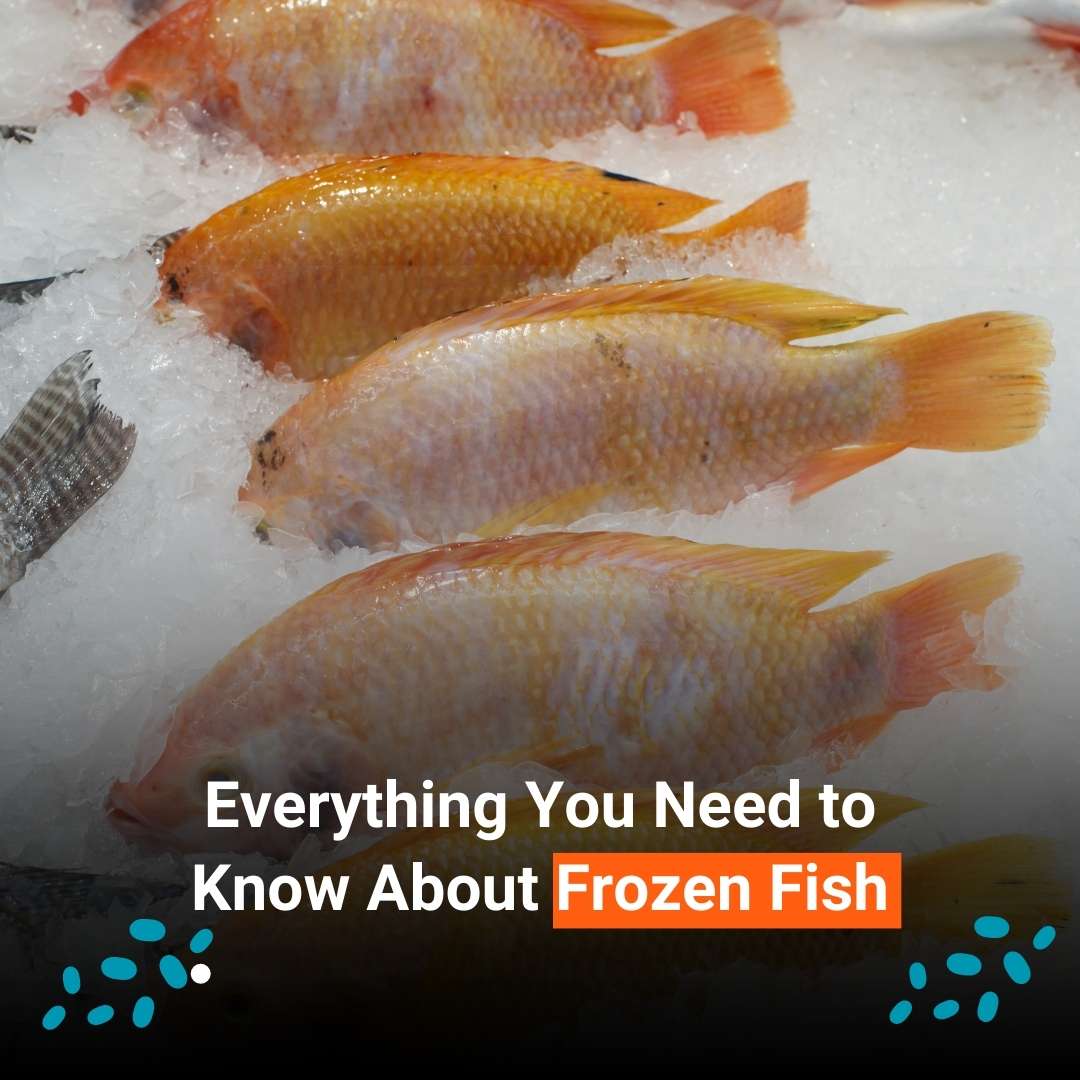There are many people who prefer the taste of frozen fish. Frozen fish provides a different kind of satisfaction because you get a taste similar to what you have in the markets. However, there are many factors that have to be considered when you choose frozen fish for your family. Buyers need to be aware of these things before buying the product.
For many people, frozen fish is like a supermarket staple. It is affordable, and you can use it in a variety of ways.
It is an affordable way to buy, store and prepare food, especially for those who don’t cook for themselves or have time to devote to meal preparation.
Bulk buyers and fish lovers! Are you ready to dive into the fascinating world of frozen fish? This blog post will take you on an icy adventure as we explore everything you need to know about frozen fish – from selecting the best quality to preserving the delicious flavours, and everything in between. Don’t let your enthusiasm for seafood freeze over; read on and discover the secrets that lie beneath the frost!
What is Frozen Fish?
Frozen fish is fish that has been preserved by freezing. It is a popular method of preservation as it does not require any cooking or other preparation and can be stored for extended periods of time. Frozen fish is available in a variety of forms, such as fillets, steaks, and whole fish. It is a convenient and affordable option for many people and can be used in a variety of dishes. It is also a good source of protein and other nutrients.
What is the History of Frozen Fish?
The history of frozen fish dates back to the early 20th century when Clarence Birdseye, an American inventor, developed a process for quick-freezing food products. In his travels to Arctic regions, he observed Inuit methods of freezing fish in barrels, which inspired him to develop the industrial method of flash-freezing.
The first commercial sale of frozen fish occurred in 1929 with the launch of the Birdseye company. The rapid expansion of freezer technology in the mid-20th century and the global demand for fish and other seafood fuelled the growth of the frozen fish industry.
World War II also played a role in the expansion of frozen foods, including fish, as it was important to preserve food for military rations and supplies. Advances in transportation, such as refrigerated cargo containers, helped maintain the quality of frozen fish as it travelled across the globe.
Over the years, freezer technology continued to improve, and the frozen fish industry evolved to include more refined methods such as individual quick freezing (IQF) and new product offerings like frozen fish fillets and ready-made meals.
Today, the frozen fish industry is a key component of the global seafood market, with sustainability and quality being major concerns in the advancement of freezing technology and supply chain management.
What are the Health Benefits of Frozen Fish?
The health benefits of frozen fish include:
- Rich in Omega-3 fatty acids: Frozen fish is an excellent source of Omega-3 fatty acids, which are essential for maintaining good heart health and reducing inflammation in the body.
- High-quality protein: Frozen fish is a great source of high-quality protein, which helps support muscle growth and repair.
- Low in fat: Many types of frozen fish are low in fat, making them a healthy choice for those looking to reduce calorie intake.
- Contains essential vitamins and minerals: Frozen fish is rich in vitamins and minerals such as B vitamins, vitamin D, selenium, and iodine, which play vital roles in various bodily functions.
- Supports brain health: The Omega-3 fatty acids found in frozen fish are crucial for proper brain function and development.
- Maintains eye health: Consuming frozen fish can help protect against age-related macular degeneration, a leading cause of vision loss in older adults.
- Reduces the risk of cardiovascular diseases: Regular consumption of frozen fish can lower the risk of heart problems, such as heart attack and stroke.
- Supports Eye Health: The nutrients in fish, including omega-3 fatty acids and vitamin A, can help improve eye health and prevent age-related eye conditions like macular degeneration.
- Easy to prepare: Frozen fish allows for quick and easy meal options, making it easier to maintain a healthy diet.
- Easy Digestion: Fish is relatively easy to digest compared to other protein sources, such as red meat.
- Long shelf life: Frozen fish can be stored in the freezer for an extended period, allowing you to have a nutritious protein source available at any time.
- Weight management: Including frozen fish in your diet can help with weight management because it’s low in calories and high in nutrients.
- Environmentally friendly: Freezing fish reduces food waste, as it allows for longer storage times compared to fresh fish.
Reasons why you should buy frozen fish
- Longer shelf life: Frozen fish can be stored for a longer period of time, ensuring you always have something on hand for a quick and convenient meal.
- Cost-effective: Frozen fish is often more affordable than fresh fish, making it a budget-friendly option for your grocery list.
- Retains nutritional value: When fish is flash-frozen soon after being caught, it retains its nutritional value, including essential omega-3 fatty acids, vitamins, and minerals.
- Consistent quality: With frozen fish, you can expect a consistent quality, as it is frozen at peak freshness, preventing degradation in taste and texture.
- Reduces waste: Frozen fish prevents food waste because you can cook only what you need, reducing the risk of spoilage.
- Convenience: Frozen fish is already cleaned and portioned, saving you time in the kitchen.
- Year-round availability: Buying frozen fish means you can enjoy your favorite fish varieties all year round, regardless of the season.
- Less pressure on local fisheries: Opting for frozen fish can reduce the pressure on local fisheries to meet the demand for fresh fish, contributing to sustainable fishing practices.
- Lower risk of contamination: Properly frozen fish can reduce the risk of bacterial contamination, making it a safer option in some cases.
- Broadens your culinary horizons: The availability of frozen fish allows you to explore and try a wider variety of fish species not typically found in your local fresh fish market.
Common Myths About Frozen Fish
Frozen fish can be a Godsend, but there are many common myths that may prevent you from taking full advantage of this frozen food. It is time to debunk these myths and show you how frozen fish can be a tasty staple in your diet.
Some popular myths regarding frozen Fish are:
- Frozen fish is poor and low in quality
- Freezing ruins, the fishy texture
- Freezing destroys all the nutritive benefits
- Frozen fish is just excellent as fresh Whenever it comes to mercury content
- Room temperature is best to defrost frozen fish.
Tips to Keep Frozen Fish Fresh in the Freezer
- Use airtight packaging: Wrap the fish tightly in plastic wrap, aluminium foil, or use vacuum-sealed bags to minimize air exposure.
- Label and date the packaging: Note the type of fish and the date it was frozen, so you can effectively manage your inventory and rotate the oldest items.
- Pre-portion the fish: Cut the fish into meal-sized portions before freezing, which allows for easier thawing and prevents excessive waste from leftover thawed fish.
- Freeze fish quickly: To maintain freshness, freeze fish as soon as possible after purchase. Rapid freezing helps to retain the fish’s texture and flavour.
- Maintain a consistent freezer temperature: Ensure your freezer is set at 0°F (-18°C) or lower to keep the fish properly frozen and prevent spoilage.
- Store the fish away from strong-smelling foods: Separating fish from foods with strong odours, can prevent flavour contamination.
- Use a layer of ice glaze: Dip the fish in cold.
Where Can Frozen Fish be Bought?
Frozen fish can be bought at various locations, including:
- Supermarkets,
- Grocery stores,
- Seafood markets, and
- Online retailers.
Frozen fish is one of the most common grocery items in the UK, and while you may have bought it at your local supermarket or discount retailers, you may not have realized that there are other options for buying it.
Is buying frozen seafood for restaurants a good option?
Buying frozen seafood for restaurants can be a good option as it offers benefits such as longer shelf life, cost-effectiveness, and consistently available supply. However, the quality and sustainability of the seafood should be considered, and restaurants should prioritize sourcing from reputable suppliers or Food Wholesalers.
Common FAQs About Frozen Fish
Frozen fish is not treated or processed except for the freezing process. To be clear, only fresh fish is processed while still fresh and never frozen.
It is recommended for staying on the safe side and limiting the shelf life of fish to a maximum of 6 months, but there is no real evidence to suggest that fish will be unsafe if kept frozen for longer than 6 months.
If frozen correctly, the fish will remain at its best quality for 2-3 months. However, if it is kept in the freezer longer than that, it might be safe to eat but it won’t be at its best quality anymore.
To determine whether a fish is spoiled, look at its eyes, gills, and flesh for signs of spoilage. The gills should be bright red; if they are brownish then they may be spoiled. If the eyes are not cloudy or sunken in, then the fish is old and maybe spoiled already. If any parts of the flesh appear dry, slimy, or wrinkled, then that part of the fish may already be spoiled.
Buying frozen seafood for restaurants can be a good option as it offers benefits such as longer shelf life, cost-effectiveness, and consistently available supply. However, the quality and sustainability of the seafood should be considered, and restaurants should prioritize sourcing from reputable suppliers or food wholesalers.
Read More: UK Most Popular Frozen Foods in 2023
Conclusion
In conclusion, understanding the various aspects of frozen fish is essential for both health and taste. From proper freezing techniques to storage and thawing, following these guidelines will ensure that you enjoy the freshest, tastiest fish every time. Remember, frozen fish can be an excellent, more sustainable, and cost-effective alternative to fresh fish, especially when sourced from a reliable supplier.
Happy cooking and enjoy your delicious, healthy, and eco-friendly frozen fish dishes!





